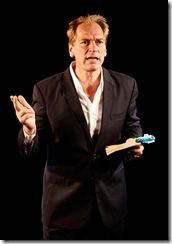So what you’re basically saying is that the residues in meat from hormones, steroids, pesticides, bacterial and viral contaminants, will lead to cancers, infertility, brain fevers, and a host of other illnesses, which we will not be able to cure with antibiotics because our tolerances have been jacked up by the residues also found in meat? So we are doomed to die young and not be able to reproduce ourselves in the bargain? – Ruth Ozeki, My Year of Meats
Ruth Ozeki worked in television and film for some thirteen years; she refers to herself as “a lapsed documentarian”. Her documentary and dramatic films have been shown on PBS, at the Sundance Film Festival, and at colleges and universities across the country. That the ‘lead role’ in her first novel should go to a documentary filmmaker should come as no big surprise. The book started off small:
I’d worked in this small niche of the media industry for eight or nine years, and during that time, it always struck me that the funniest, most interesting, most tragic, and most culturally profound interactions always happened either behind the camera or when the camera was turned off. I hate wasting good narrative and am an archivist at heart, so I decided to record some of the anecdotes.[1]
This wasn’t even going to be a novel at first but as she continued writing she found a voice that she realised “was strong enough, and had enough to say, to sustain a novel.” But what was the book to be about?
The meat was metaphorical, a gag, if you will. As Jane and her crew embarked on a road trip to make a cooking show featuring rural American housewives (I’d done a similar kind of show myself and found it rich in narrative episode), meat took on a variety of metaphorical resonance: I was thinking of women as cows; wives as chattel (a word related to cattle); and the body as meat, fleshy, sexual, the irreducible element of human identity.
As writers we don’t often write the books we set out to write; we write the books that need to be written. As she did more research Ruth realised she was onto something:
You are what you eat, right? I was already several hundred pages into the novel when I realized I needed to take the meat issue more seriously. I started doing research on the industry, and I was pretty appalled at what I found out. I fed this information to Jane, who acted upon it, and this is how the plot of the novel developed.
The book reflects this change in perspective.
Jane Takagi-Little is, as already mentioned, a documentary filmmaker. She gets hired to work on a show for Japanese TV called My American Wife! This is how the show is pitched to her:
My American Wife!
Meat is the Message. Each weekly half-hour episode of My American Wife! must culminate in the celebration of a featured meat, climaxing in its glorious consumption. It’s the meat (not the Mrs.) who’s the star of our show! Of course, the “Wife of the Week” is important too. She must be attractive, appetizing, and all-American. She is the Meat Made Manifest: ample, robust, yet never tough or hard to digest. Through her, Japanese housewives will feel the hearty sense of warmth, of comfort, of hearth and home—the traditional family values symbolized by red meat in rural America.
The show is sponsored by a company called BEEF-EX and their goal is simple: Turn Japanese wives onto American meat especially beef. Their motto? “Pork is Possible, but Beef is Best!” The show is to last a half hour and will be broadcast at eight o’clock on Saturday mornings so not primetime TV—far from it—but the sponsors are very serious about it. Once Jane agrees to take part the details in that initial pitch are made crystal clear:
DESIRABLE THINGS:
UNDESIRABLE THINGS:
*** MOST IMPORTANT THING IS VALUES, WHICH MUST BE ALL-AMERICAN.
Documentaries are all about truth, right? Yeah, right. BEEF-EX want their truth presented to the Japanese people: Beef is wholesome. Beef is good for you. Buy beef. But why the hard sell? The Japanese are big fish eaters. Accounting for nearly 23 percent of the average Japanese person’s protein intake, most Japanese consume an average of 128 pounds of seafood every year on a per capita basis—four times the global average according to the UN Food and Agriculture Organization.
The eating of meat in Japan is a relatively new custom. In the Heian Court, which ruled from the eighth to the twelfth centuries, it was certainly considered uncouth; due to the influences of Buddhism, meat was more than likely thought to be unclean.
The first show does not go too well. Suzi Flowers, the first American Wife, misunderstands the instructions. She was supposed to have prepared the  meats in multiples, in stages, and so the crew has to hang around for hours while she prepares her Coca-Cola Roast:
meats in multiples, in stages, and so the crew has to hang around for hours while she prepares her Coca-Cola Roast:
The meat-cooking section was the most important part of the show, Jane said. It had to be interesting. So to make up for not having enough steps, the director decided to take lots of different shots of the same steps over and over again. But Suzie had bought only enough ingredients to make one rump roast, so they had to go out to the grocery store and buy a dozen economy-size bottles of Pepsi because the store had run out of Coke. Unfortunately they couldn’t find another rump roast that looked the same, and in between each take, Suzie had to wash off the raw meat in the sink and pat it dry with paper towels and make it look new again.
Things go from bad to worse: in the Sociological Survey part of the show (a supposedly humorous Q+A) her husband ends up confessing to an affair with a cocktail waitress and walks out of the show and on his wife. Somehow enough material gets shot and kluged together to make a viable programme even if the Romantic Evening Kiss—which had been filmed much earlier on—looked ludicrous at the end of the show. Perhaps she’d forgiven him and they’d made up—was that the message? Despite the problems encountered during the production the first programme of the show is a ratings success:
[T]he first episodes we’d shot had scored ratings of up to 7.8 percent and penetrated approximately 9,563,310 households. This was very good. With an average of 3.0 persons per household, an estimated 28,689,930 members of the Japanese population watched our show, and the sponsors were pleased. I mean, that’s a lot of sirloin.
Watching this show is Akiko Ueno, wife of Joichi, one of the show’s directors who likes to get called “John” (as in Wayne—think about it). She comes across as your stereotypical, submissive Japanese housewife but her husband is not deserving of the respect she honours him with; he’s a bully on a good day and a wife beater the rest of the time. Her job as his wife, he informs her, is to watch the show when it is aired, buy the necessary ingredients to make that week’s dish, prepare it and serve it to him that evening when he returns from work. She also has to complete a questionnaire ranking the show for things like General Interest, Educational Value, Authenticity, Wholesomeness, Availability of Ingredients, and Deliciousness of Meat:
“You will help me with the campaign … and learn to cook meat too. Fatten you up a little.” Then, all of a sudden, he got very serious. He sat straight up on his knees in front of her, spine stiff, head bowed.
“It was on account of your condition that I was able to have this wonderful idea for the BEEF-EX campaign in the first place,” he said in formal Japanese. “I have received great praise from my superiors at the company, and if everything goes well I shall get a significant advancement too.” He bowed deeply in front of her, touching his head to the tatami floor. “I am most grateful to you.”
Akiko blushed, heart pounding with pleasure, then she realized he was drunk.
Her “condition” is that she’s bulimic. Her husband doesn’t realise—he’s not the most observant of men—but puts down the fact she can’t conceive to whatever this condition is she has; she’s as thin as a rake. The meat, however, does not help; she simply can’t keep it down. I don’t think John Wayne ever played a bad guy although he played a few unpleasant ones but “John” Ueno is most definitely your clichéd, moustache-twirling baddie. At least that’s how many look on him. When asked how she would respond to a reader who said that Joichi Ueno’s character was one-dimensional Ozaki replied:
I’d agree that he is perhaps more simply depicted than Jane and Akiko, but then maintain that he is not a point-of-view character and the book isn’t really about him. One thing that has surprised me is that some readers feel so little empathy for him. Sure, he is the villain of the book, but he is a sad man, too. He is caught between a rock and a hard place, between his American bosses and Japanese corporate culture on one hand, and two highly subversive women on the other. He feels extreme rage and he has a substance-abuse problem; he handles himself very badly. I think his position is interesting, compromised, and one I can relate to.
I’m afraid I had very little … no, that’s not true … I had no sympathy for this guy at all. I felt more for the man who was poisoning his family through using banned chemicals.
So we have a woman in America making documentaries and a woman in Japan being affected by them. A simple and effective premise. Of course as Jane starts to get more involved in the show—taking over full directorial duties—she find it harder and harder to present the kind of sanitised show the sponsors want. And so she pushes. And they push back. Perhaps the low point (for her) is the show with the lesbians—two American Wives for the price of one—and she might’ve got away with that if they hadn’t been vegetarians; BEEF-EX did not like that. Perversely this is the show that affects Akiko the most.
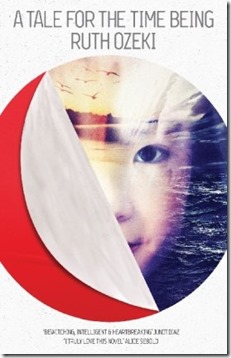 As with Ozeki’s most recent book, A Tale for the Time Being, the narrative rocks back and forward between Jane and Akiko, Jane’s story being told in the first person, Akiko’s being told in the third. Both women end up having to take a long, hard look at what they’re doing with their lives: can they, in good conscience, continue with the lives/lies they’ve been living? Will Jane make the documentary-that-really-needs-to-be-made? Will Akiko get her act together and leave her domineering husband? Will “John” get what he deserves? Of course there’s a bit of a hiccup when it looks like Jane’s lost the video with all the incriminating evidence on it and things go very badly for Akiko when her husband discovers the fax hidden in the dictionary—she ends up hospitalised—but these are only temporary setbacks. Two happy-endings-of-sorts are on the cards.
As with Ozeki’s most recent book, A Tale for the Time Being, the narrative rocks back and forward between Jane and Akiko, Jane’s story being told in the first person, Akiko’s being told in the third. Both women end up having to take a long, hard look at what they’re doing with their lives: can they, in good conscience, continue with the lives/lies they’ve been living? Will Jane make the documentary-that-really-needs-to-be-made? Will Akiko get her act together and leave her domineering husband? Will “John” get what he deserves? Of course there’s a bit of a hiccup when it looks like Jane’s lost the video with all the incriminating evidence on it and things go very badly for Akiko when her husband discovers the fax hidden in the dictionary—she ends up hospitalised—but these are only temporary setbacks. Two happy-endings-of-sorts are on the cards.
Ozeki said she never set out to write what she calls “a novel of causes” but it’s hard for her, albeit through her characters, not to get a little preachy:
If we can’t act on knowledge, then we can’t survive without ignorance. So we cultivate the ignorance, go to great lengths to celebrate it, even. The faux-dumb aesthetic that dominates TV and Hollywood must be about this. Fed on a media diet of really bad news, we live in a perpetual state of repressed panic. We are paralyzed by bad knowledge, from which the only escape is playing dumb. Ignorance becomes empowering because it enables people to live. Stupidity becomes pro-active, a political statement. Our collective norm.
Having enjoyed reading A Tale for the Time Being I was interested to see what she’d done before. I chose her first novel because it looked like it was going to have a similar premise and it does. In A Tale for the Time Being I was willing to accept the similarities between the two women as more than a coincidence, in fact it’s an important part of the story that the young girl’s diary gets into the right reader’s hands. In My Year of Meats I found the connection between the two women a little more contrived or at least convenient but not impossible. The supporting cast also veered more towards the stereotypical, even the caricatured at times. Had this book been written by a monocultural American I might have shrugged it off as bad writing but since Ozeki is half-Japanese and lived for several years in Japan I’m not so quick to judge. I’m British and so none of the characters in this book felt real to me and there was no one I felt I’d enjoy having a cup of coffee with.
On the whole the book has received a lot of praise and, as far as it’s “cause” goes I can see why. She wraps up her message a little neater than Morgan Spurlock might have (I’m thinking about his documentary Super Size Me) but the message still comes across loud and clear. It won’t stop me eating meat—although I’m not a huge fan of steak—but then I live in the UK and I like to think we hold ourselves to a higher standard (here in Scotland, most beef is grassfed) but maybe I’m deluding myself.
The book has just been released in the UK by Canongate along with Ozeki’s second novel, All Over Creation.
***
 My Year of Meats won the Kiriyama Pacific Rim Award, the Imus/Barnes and Noble American Book Award, and a Special Jury Prize of the World Cookbook Awards in Versaille. All Over Creation was awarded a 2004 American Book Award from the Before Columbus Foundation, as well as the Willa Literary Award for Contemporary Fiction. A Tale for the Time Being won the IBW Book Award 2013.
My Year of Meats won the Kiriyama Pacific Rim Award, the Imus/Barnes and Noble American Book Award, and a Special Jury Prize of the World Cookbook Awards in Versaille. All Over Creation was awarded a 2004 American Book Award from the Before Columbus Foundation, as well as the Willa Literary Award for Contemporary Fiction. A Tale for the Time Being won the IBW Book Award 2013.
Ruth Ozeki was born and raised in New Haven, Connecticut, by an American father and a Japanese mother. She studied English and Asian Studies at Smith College and travelled extensively in Asia. She received a Japanese Ministry of Education Fellowship to do graduate work in classical Japanese literature at Nara University.
Ozeki, a frequent speaker on college and university campuses, currently divides her time between New York City and British Columbia, where she lives with her husband, artist, Oliver Kellhammer. She serves on the advisory editorial board of the Asian American Literary Review and on the Creative Advisory Council of Hedgebrook. She practices Zen Buddhism with Zoketsu Norman Fischer, and is the editor of the Everyday Zen website. She was ordained as a Sōtō Zen priest in June, 2010.
NOTES
[1] All quotes from the interview at the back of the Penguin edition

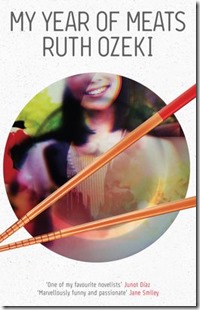
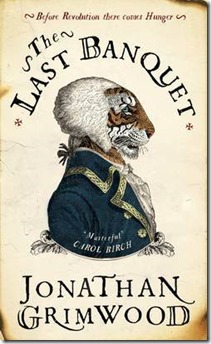
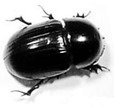
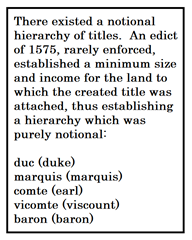
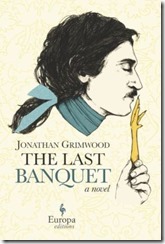
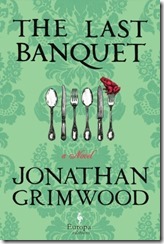
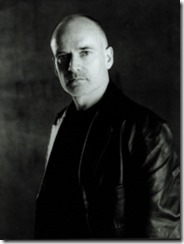 Jon Courtenay Grimwood
Jon Courtenay Grimwood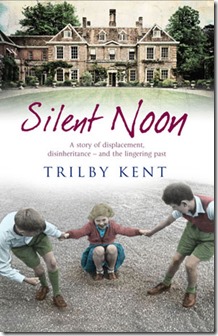
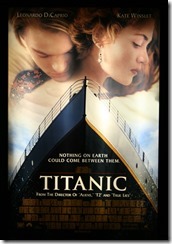
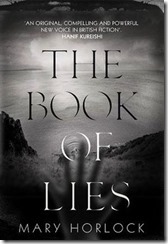
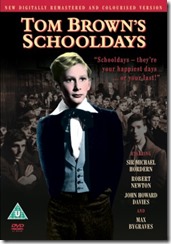

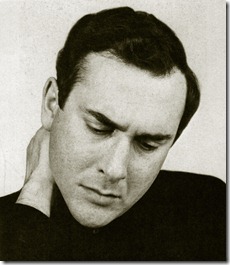



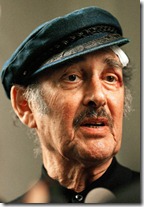 Harold Pinter
Harold Pinter